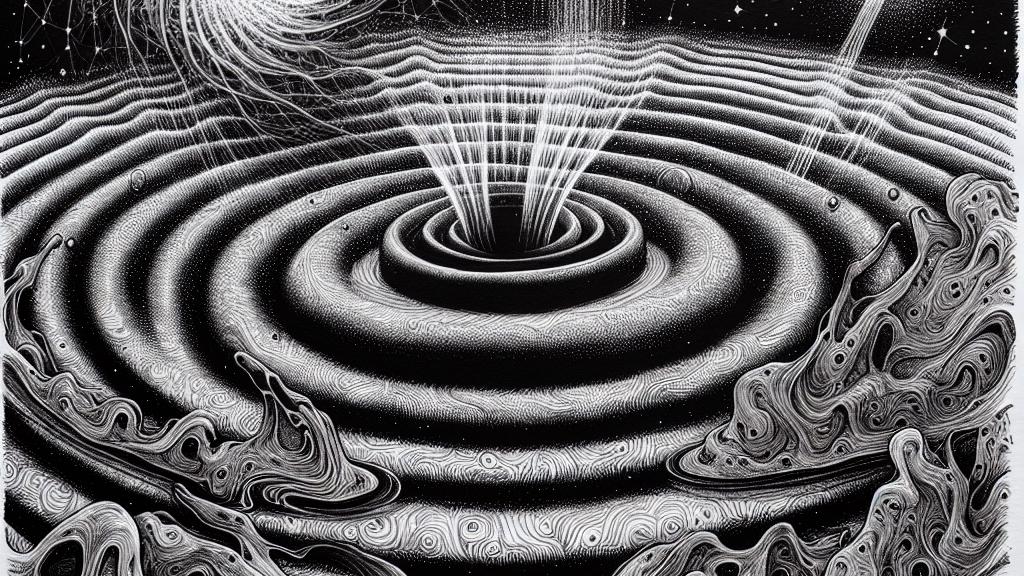Understanding How Gravitational Waves Can Help Us Learn About Black Holes and Dark Matter
Overview
- Gravitational waves reveal hidden behaviors of black holes.
- Primordial black holes (PBHs) might solve the dark matter mystery.
- New quantum discoveries are transforming our understanding of black hole dynamics.

What Are Gravitational Waves?
Gravitational waves are fascinating cosmic ripples produced by some of the universe's most violent events, such as the collision of black holes. Imagine a stone dropped in a still pond; the waves ripple outward, unveiling the layers of the cosmic fabric. This extraordinary phenomenon was first directly detected in 2015 by the Laser Interferometer Gravitational-Wave Observatory (LIGO) in the United States, as it captured the signals from two black holes merging over a billion light-years away! Each gravitational wave detected is like a universal postcard, revealing intricate details about these mysterious objects that we can’t see directly.
Unraveling the Mystery of Black Holes and Hawking Radiation
Black holes are among the most enigmatic entities in our universe, and their interaction with quantum physics only adds to the intrigue. One thrilling aspect is Hawking radiation, named after the brilliant physicist Stephen Hawking. This concept proposes that black holes can emit tiny particles, a process akin to leaking smoke from a sinking ship. While large black holes are thought to emit minimal radiation, smaller ones could undergo a dramatic journey of evaporation. Moreover, primordial black holes formed shortly after the Big Bang hold the potential to be a vital key to understanding dark matter, suggesting we may find unexpected connections between black holes and the fabric of our universe.
Could Primordial Black Holes Be Dark Matter?
Enter the fascinating realm of dark matter—an elusive substance that makes up about 27% of the universe yet remains unseen. Picture trying to find a shadow in a dark room; that’s the challenge scientists face in identifying dark matter. What if primordial black holes (PBHs) were the missing pieces of this cosmic puzzle? These black holes, theorized to have formed in the tumultuous early universe, may share characteristics with dark matter, generally moving slowly and interacting minimally with other matter. This exciting theory opens doors to groundbreaking research, unlocking a potential solution to one of cosmology's biggest questions and transforming our understanding of the universe.
Exciting New Discoveries in Quantum Physics
Recently, scientists unveiled a remarkable concept known as the quantum memory burden effect, disrupting our traditional views of black hole behavior. Imagine a giant balloon losing air; usually, you expect it to shrink until it’s gone, right? However, this new theory suggests that as a black hole loses half its mass, it might stabilize and avoid complete evaporation. This captivating idea indicates that black holes may exist in our universe far longer than previously believed, possibly serving as cosmic libraries holding crucial information about dark matter. As researchers delve deeper into gravitational wave data, they are poised to uncover thrilling revelations that could reshape our understanding of both black holes and dark matter, giving us insights into the universe's grand design.

Loading...